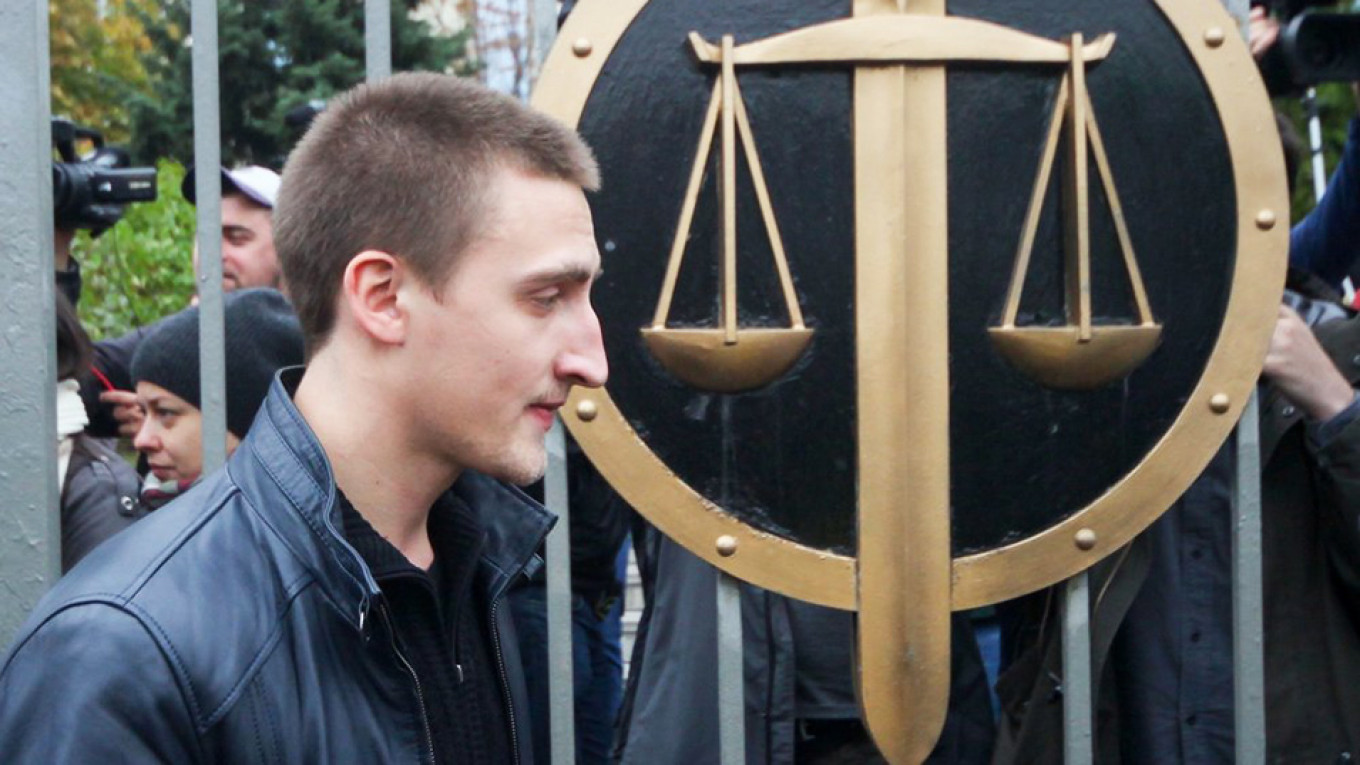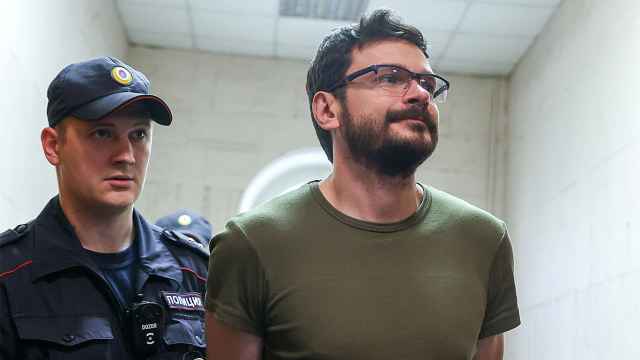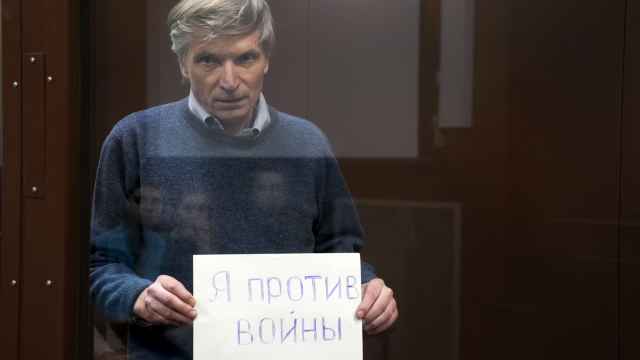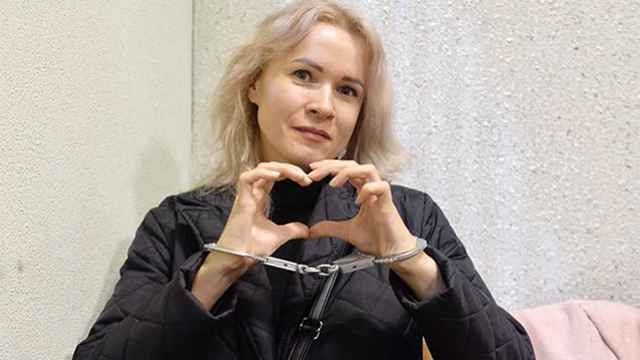Ignoring clear and convincing evidence to the contrary, a Moscow court on Monday delivered a guilty verdict against Russian actor Pavel Ustinov. Yes, the court reduced Ustinov's three and a half years jail verdict to a one-year suspended sentence, but the judge kept the guilty verdict.
Ustinov was one of several people detained at or near the protests that flared in the capital of the country in July when a number of opposition politicians were excluded from a local election. Ustinov's case became the focus of public outrage, with Russian celebrities publicly demanding the aspiring actor be freed.
The authorities often give suspended sentences in high-profile cases to put a “kinder, gentler” face on their injustice. This is often the only approach Russian courts can reasonably take in cases that have political overtones and strong public opposition.
Such compromises are an attempt to cut losses for both the state and the accused. Still, they are an awkward solution, a half-hearted “indulgence” at best. Far from proving that the authorities are not so bad after all, this conviction yet again shows the entire country that the Russian courts are the lapdogs of the security services.
It is no coincidence that the head of the country’s National Guard Viktor Zolotov recommended just such a ruling two weeks ago. Only the Russian justice system can claim to have shown mercy by giving a suspended sentence to an innocent man who is himself a victim of that system’s abuse of power.
Even after studying all of the evidence and the expertise in this case, downgrading the alleged crime from a felony to a misdemeanor and substituting a suspended sentence for prison time, the court did nothing to correct the primary injustice. It convicted the victim and refused to charge those who victimized him.
Footage of Pavel Ustinov's arrest on Aug. 3 clearly showed four national guardsmen in riot gear suddenly grabbing him while he was scrolling through his mobile phone in the street, completely minding his own business.
Thanks to recent high-profile cases and the information about the judicial process available in the media and on social networks, Russians have grown to realize something in recent years. They now understand that the authorities can get them in trouble not only for their political or business activities, but also for simply crossing the path of a police officer or investigator who, to fill an arrest or conviction quota, is willing to falsify evidence and level false charges.
This case sends an unmistakable signal to society: The state presumes everyone is guilty and the most one can hope for is a reduced sentence. Establishing your innocence is out of the question. By enforcing such a sentence, the state makes cynicism its official ideology.
The Russian public cannot but feel indignant over this, and that indignation has already become a steady growl, if not yet a mighty roar.
But this lack of faith in the Russian courts was not born yesterday. Citing a 2017 European study, sociologist Vladimir Prokhod found that Russia placed 19th out of 23 European countries for public trust in the judicial system.
It ranked far behind not only the Scandinavian countries, Britain and Germany, but also Estonia, Lithuania and the Czech Republic — beating only Poland, Portugal and Slovenia.
By asserting the rule of force and not of law, by making it understood that anyone can be found guilty if necessary, the state only fuels legal nihilism and convinces its citizens that they cannot protect their rights through the courts.
Instead of a healthy respect for the law, they have only fear of the state. But even someone who is very frightened will eventually shed that fear.
A Russian version of this article was first published by Vedomosti.
A Message from The Moscow Times:
Dear readers,
We are facing unprecedented challenges. Russia's Prosecutor General's Office has designated The Moscow Times as an "undesirable" organization, criminalizing our work and putting our staff at risk of prosecution. This follows our earlier unjust labeling as a "foreign agent."
These actions are direct attempts to silence independent journalism in Russia. The authorities claim our work "discredits the decisions of the Russian leadership." We see things differently: we strive to provide accurate, unbiased reporting on Russia.
We, the journalists of The Moscow Times, refuse to be silenced. But to continue our work, we need your help.
Your support, no matter how small, makes a world of difference. If you can, please support us monthly starting from just $2. It's quick to set up, and every contribution makes a significant impact.
By supporting The Moscow Times, you're defending open, independent journalism in the face of repression. Thank you for standing with us.
Remind me later.








